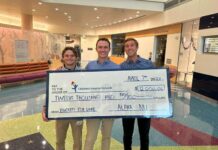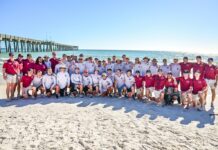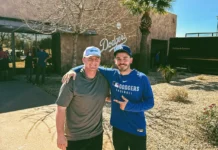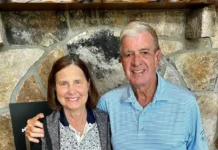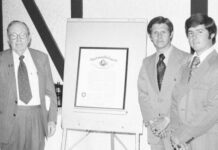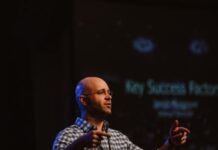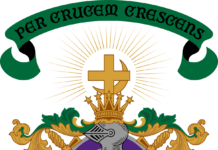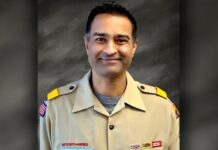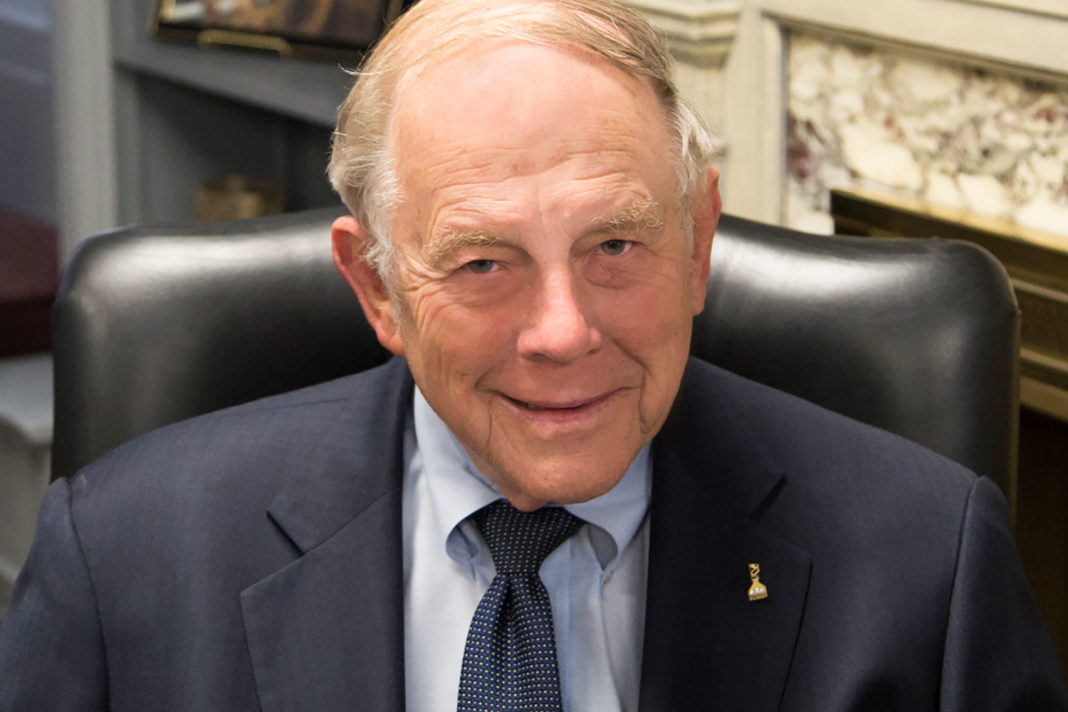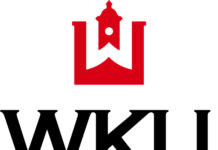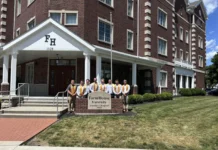Throughout his career, Jim Herbert, FarmHouse Fraternity member, has led change in the agriculture industry—from his time as an editor to working in genetics research to starting Neogen, a $5 billion publicly traded biotechnology company he led as chief executive officer until late 2017. And his impact isn’t just stateside, but global.
What prior career opportunities helped you attain your current role?
My degree from the University of Tennessee was in animal science, but I also had a minor in journalism. The first several years of my career were in the journalistic pursuit before joining a friend to assist him in building what has become the world’s largest egg producing firm, Cal-Maine Foods. That career led me to DeKalb Ag Research, a large firm in agricultural genetics. I was able to do a number of things during my career there: I was responsible for the company’s major poultry breeding business, the swine seed stock and hybridization programs, feedlot management, large cow/calf ranches, the development of non-nutritive sweeteners and coloring agents for food and a company manufacturing several instruments for the measurement of oxygen, CO2, etc.
How did Neogen get started?
After DeKalb, a friend representing the venture capital industry and administration of Michigan State University felt they could, in some fashion, form a biotechnology company that could be attractive to investors and give the University a vehicle to market their inventions. We started with $75,000 and I rented a small office space and hired a secretary. We had no revenues and no products but were convinced we were at the right place at the right time with the right technology. If we could put together the right people and pursue the right growth strategy, this new company, Neogen, could be successful—and we were right.
Beginning in the U.S., what was the push for expanding internationally?
The mission of Neogen from the start was to produce solutions for food and animal safety, and we knew this would be a worldwide concern and opportunity. We began to mentally apply that strategy toward what we term food security, supplying the quantity and quality of food necessary to feed a growing population. Of course, China and India represent the two most significant growth countries; however, other countries are going to have to help supply the food for their demands since it is likely to out strip their own internal capacities. We now do business in 114 countries and have Neogen employees and installations in 10 countries.
What are some of the challenges of running a company internationally versus domestically?
Fortunately for Neogen, our strategy is well received almost anywhere in the world as people seek ways to produce safer food and more of it.
What do you enjoy most about your career and professional work?
I guess with an agricultural background, I can just say I enjoy most watching things grow. This includes the growth of leadership of company employees as they have put together and maintained a high-growth company. Along the way, I have had an opportunity to lead, direct and encourage the team that built Neogen from two employees 36 years ago to approximately 1,600 around the world today. That team has built a record of showing growth each quarter greater than the same quarter the prior year for 110 times (27 years).
How do you spend your time outside of work?
Somewhere along the way I remember the quote, “Find a job you love, and you’ll never work another day in your life.” I suppose those associations have prompted a lot of friendships, travel and philanthropy work. That side of life for both my wife and I have been particularly important, allowing us to help found and continue to support the Herbert Herman Cancer Center in Lansing, Mich., which is a large complex attached to the city’s largest hospital system. It led to the recent honor of speaking at the dedication for the Herbert College of Agriculture at the University of Tennessee. It is not just the big ones like this, but the many other places—some very small—where at the end of the day you can say I helped make a difference in someone’s life or I helped make this old work a bit better.
How did you come to first know about FarmHouse as a high school or college student?
Though fraternity life looked interesting in those early days, I was not in a financial position to give it much concern. I was living rent free in a room at a greenhouse system on the University’s Ag campus and earned my room and board by watering plants in the evenings and on the weekend. Once I got a bit ahead, I joined FarmHouse because of its reputation.
What about the FarmHouse experience spoke to you, prompting you to be accept an invitation to join?
I was impressed by the stature of the men and their leadership positions, the fact that they had the leading GPA of any fraternity on campus, yet at the same time were active in intramural sports and student body leadership organizations.
What role does the Fraternity’s call for a “promise of service to our fellow men and to the world” have for you today?
I suppose in some ways the Neogen mission was built around service to fellow men in the world since we vowed to develop solutions for existing problems.
Do you have a favorite quote about leadership or personal development that resonates with you?
“If your actions inspire others to dream more, learn more, do more, and become more you are a leader.” —John Quincy Adams
Jim and his wife of 55 years, Judi, have two children and three grandchildren. Jim also served as a Trustee for the FarmHouse Foundation for six years.

